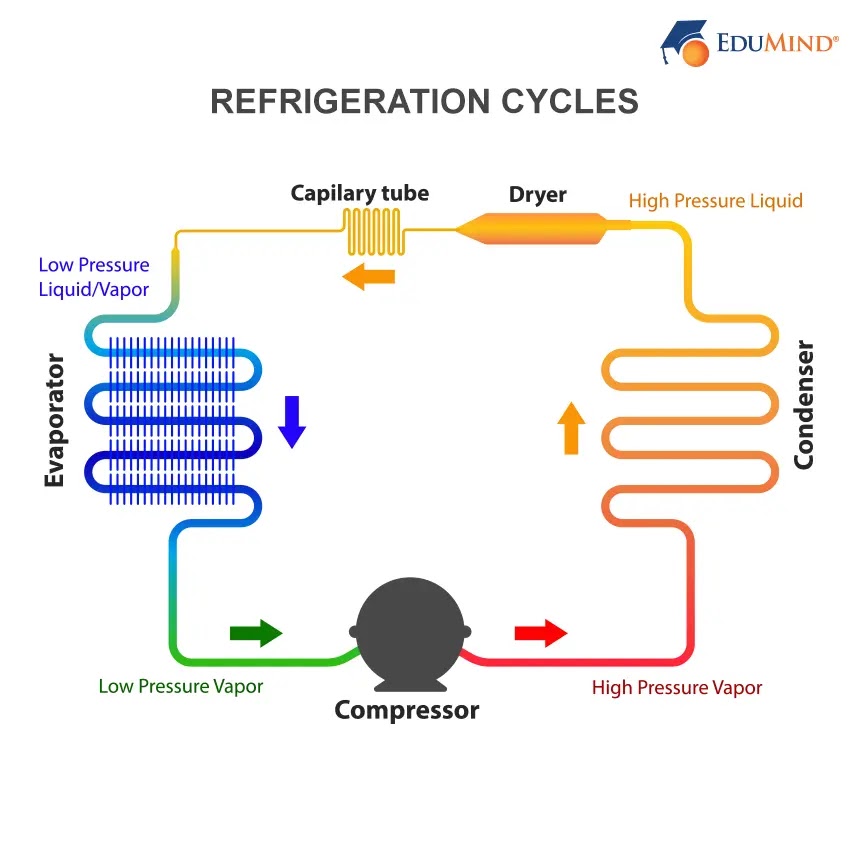Ph.D. in Refrigeration & Air Conditioning Engineering: Introduction, Admission, Registration, Eligibility, Duration, Fees, Syllabus 2024

Introduction:
A Ph.D. in Refrigeration focuses on advanced study and research in the science and technology of refrigeration systems. This program is crucial in a world increasingly concerned with energy efficiency, environmental impact, and the pursuit of sustainable technologies. Through this program, doctoral candidates explore the thermodynamics of refrigeration, heat transfer, fluid dynamics, and the integration of renewable energy sources into refrigeration technology. Scholars delve into the design, optimization, and innovation of refrigeration systems, aiming to improve performance and reduce the carbon footprint. The program combines theoretical study with practical research, often collaborating with industries that depend heavily on refrigeration. This interdisciplinary degree can encompass mechanical engineering, chemical engineering, environmental science, and even aspects of business and management related to the refrigeration industry.
Admission Process:
- Submission of a completed application form to the respective department.
- Holding a relevant Master's degree, such as in Mechanical Engineering, Chemical Engineering, or a related field.
- Provision of all academic transcripts.
- Submission of letters of recommendation.
- Crafting a statement of purpose or research intent.
- Meeting any specific entrance examination or interview requirements set by the institution.
Eligibility:
- A Master's degree in engineering or a closely related field with a focus on thermal systems.
- Demonstrated academic excellence and a strong understanding of thermodynamics and heat transfer.
- Previous research experience and publications can be beneficial.
- Proficiency in relevant computational and simulation tools.
- A well-defined research proposal in the area of refrigeration technology.
Completion Time:
The completion time for a Ph.D. in Refrigeration typically ranges between 3 to 5 years. The first phase involves coursework to solidify foundational knowledge and often includes comprehensive exams to assess proficiency. The subsequent phase is dedicated to research, where students are expected to develop, conduct, and complete an original research project, culminating in a dissertation. This intensive research phase requires designing experiments, data analysis, and innovation in refrigeration technology. The final phase includes writing the dissertation and defending it before an academic committee. Timely completion depends on the scope of the research, its complexity, and the publication process.
Career Opportunities:
- R&D engineer in refrigeration and cooling technologies.
- Academic faculty positions at universities.
- Lead engineer in HVAC and refrigeration companies.
- Consultant for energy efficiency in refrigeration systems.
- Policy advisor for environmental and sustainability issues related to refrigeration.
Syllabus:
- Advanced Thermodynamics and Heat Transfer.
- Refrigeration Systems Design and Analysis.
- Computational Fluid Dynamics in Refrigeration.
- Alternative Refrigerants and Environmental Impact.
- Energy Management and Sustainability in Refrigeration.
- Advanced Control Systems for Refrigeration.
Internship Opportunities:
- Industry placements in HVAC and refrigeration companies.
- Research internships at energy laboratories.
- Internships at government agencies focusing on energy policies.
- Collaboration with companies focusing on sustainable refrigeration solutions.
- Internships in academia, assisting in teaching and research projects.
Scholarship and Grants:
- University scholarships for doctoral studies.
- Research grants from engineering and scientific societies.
- Industry-sponsored fellowships for research in refrigeration technology.
- Government scholarships for studies in energy sustainability.
- International research funding opportunities.
FAQs:
What kind of research topics are covered in a Ph.D. in Refrigeration?
Research topics often include innovative refrigeration cycles, energy-efficient systems, and the use of alternative refrigerants.
Is industrial experience required for this program?
While not always required, industrial experience can be advantageous.
Can I tailor my research towards environmental sustainability?
Yes, sustainability is a key focus area within refrigeration research.
Are there collaborative opportunities with industry?
Many programs encourage or facilitate industry collaboration.
What kind of facilities are available for Ph.D. students?
Universities typically offer advanced laboratories equipped with the latest refrigeration and thermal systems technology.
